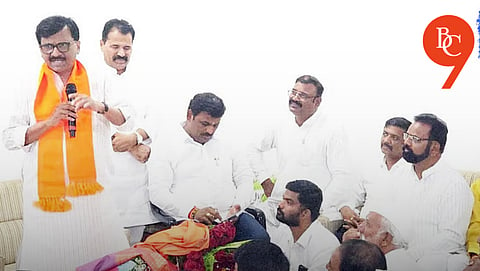

India is undergoing one of the fastest digital transformations in the world—making strides in artificial intelligence, fintech, digital public infrastructure, and data governance. Yet, a critical segment of leadership is lagging behind: politicians. Many Indian political leaders, especially at the state and local levels, suffer from what can be called “tech insecurity”—a fear, resistance, or lack of interest in understanding technological change. In an era where digital fluency is key to effective governance, this insecurity is no longer a quaint problem—it’s a crisis.
Tech insecurity is not just unfamiliarity with gadgets or jargon. It’s a deep institutional reluctance to embrace technology as a governing tool. This mindset is characterized by:
Dependence on bureaucrats or “tech advisors” to interpret digital matters.
Evasion of policies related to emerging technologies like AI, blockchain, and data privacy.
Scepticism about social media, cloud platforms, or real-time data dashboards.
Centralised, top-down decisions that ignore bottom-up digital innovations.
More often than not, this stems from lack of digital literacy and inadequate upskilling within political ranks. In India, where politicians from a diversity of age groups and socio-economic backgrounds serve in office, the generational digital divide is especially visible.
India is already a digital juggernaut:
Over a billion people are connected to smartphones and mobile data.
Initiatives like Aadhaar, UPI, Digilocker, and ONDC have transformed citizen-state interaction.
AI adoption in sectors like agriculture, health, language services, and education is picking up pace.
Startups and tech entrepreneurs are shaping the future of jobs, supply chains, and financial inclusion.
Yet, if lawmakers are not able to comprehend, regulate, or proactively work with these transformations, there is a risk of digital policy being driven solely by private interests or unelected officials.
Without political ownership, technologies like AI in policing or data governance in welfare schemes may escape democratic oversight.
The consequences of tech insecurity among political leaders are manifold:
Delayed legislation on matters like AI ethics, internet rights, or data protection.
Vulnerability to misinformation, manipulated media, and cyber threats.
Exclusion of digitally underserved communities, as leaders fail to bridge the grassroots-tech divide.
Disconnected public policy, poorly aligned with the realities of a digital citizen base.
Worse, such insecurity can lead to tech populism—an attitude where politicians either demonize technology or misuse it for surveillance or propaganda, without understanding its nuances.
Many young Indian voters—even in semi-urban and rural areas—are tech-savvy, running businesses via Instagram or watching political news on YouTube. If politicians continue to treat technology as a domain outside their concern, they risk becoming digitally irrelevant in the eyes of their own constituents.
